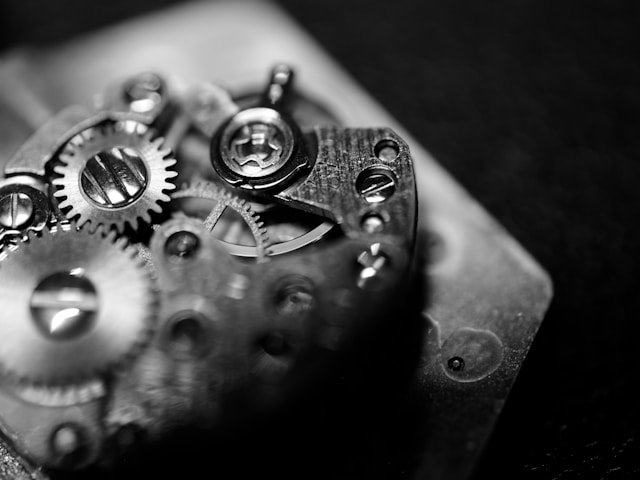
Quartz vs Automatic Watches
Disclosure: As an Amazon Associate I earn from qualifying purchases
Understanding the Differences to Choose the Right Timepiece
When shopping for a new watch, one of the first decisions you’ll face is whether to buy a quartz or an automatic watch. Both have their strengths and appeal, but they are fundamentally different in how they operate, how they’re maintained, and what they mean to the wearer.
For some, a watch is simply about keeping accurate time. For others, it’s about craftsmanship, tradition, and the joy of owning a mechanical marvel. Knowing the key differences between quartz and automatic watches will help you decide which best suits your lifestyle, budget, and style preferences.
In this article, we’ll break down how quartz and automatic watches work, weigh their pros and cons, and highlight which might be the right choice for you. We’ll also suggest some models you can explore, along with space for affiliate recommendations to help readers find the perfect timepiece.
1. How Quartz Watches Work
The Science of Accuracy
Quartz watches are powered by a battery that sends electricity through a tiny quartz crystal. This crystal vibrates at a precise frequency — 32,768 times per second — which regulates the movement of the watch hands.
Key benefits of quartz watches:
- Accuracy: Quartz watches are extremely accurate, often deviating by only a few seconds per month.
- Low maintenance: Battery changes are usually needed every 1–3 years.
- Affordability: Quartz technology is inexpensive, making quartz watches accessible to almost every budget.
- Durability: Many quartz watches are built for everyday use, from affordable Casio G-Shocks to high-end Swiss quartz pieces.
Quartz watches are perfect for those who want a reliable, no-fuss timepiece that just works.
2. How Automatic Watches Work
Mechanical Craftsmanship in Motion
Automatic watches, also known as self-winding watches, use a mechanical movement powered by the wearer’s wrist motion. Inside the watch, a rotor spins as you move, winding the mainspring that stores energy and powers the movement.
Key benefits of automatic watches:
- Mechanical artistry: Automatics are celebrated for their intricate craftsmanship and centuries-old tradition.
- No battery: They wind themselves as you wear them, though many can also be hand-wound.
- Character and soul: Enthusiasts often say automatics have more “personality” than quartz watches.
- Longevity: With proper care and servicing, an automatic watch can last decades, even generations.
However, automatics require more care. They may lose or gain a few seconds each day, need servicing every 4–6 years, and will stop if not worn regularly (unless stored in a watch winder).
3. Quartz vs Automatic: Which One is Right for You?
Weighing Lifestyle, Budget, and Preferences
So, should you choose quartz or automatic? The answer depends on your priorities.
Choose quartz if:
- You want maximum accuracy with minimum effort.
- Your budget is limited, but you still want a stylish, reliable watch.
- You prefer lighter, more durable options for everyday wear.
Choose automatic if:
- You appreciate traditional watchmaking and craftsmanship.
- You want a timepiece that feels more like a companion than a tool.
- You’re happy to invest in servicing and care for a long-lasting piece.
Many collectors end up owning both: a quartz watch for practicality and an automatic for occasions where style and appreciation matter most.
4. Recommended Watches
Quartz vs Automatic Watches face off!
- Quartz Recommendations
- Casio Men’s G-Shock DW5600E-1V – rugged, affordable, highly durable.
- Seiko Men’s Quartz Watch Stainless Steel with Stainless Steel Strap– a stylish, budget-friendly quartz dress watch.
- Tissot PRX Quartz – modern Swiss design with retro flair.
- Automatic Recommendations
- Orient Bambino – the perfect entry-level dress watch.
- Seiko 5 Sports – durable, versatile, and affordable automatic.
- Hamilton Khaki Field Automatic – a Swiss classic with heritage.
Conclusion: The Best of Both Worlds
The quartz vs automatic debate isn’t about which technology is “better” — it’s about which is right for you. Quartz watches deliver unmatched accuracy, affordability, and convenience. Automatic watches, on the other hand, offer craftsmanship, tradition, and a sense of connection that quartz can’t replicate.
If you want a reliable everyday watch, quartz is hard to beat. If you value artistry and the history of horology, an automatic will be deeply rewarding. Many watch enthusiasts end up with both types, enjoying quartz for its practicality and automatics for their beauty and heritage.
Ultimately, the best watch is the one you’ll enjoy wearing, whether it’s powered by a battery or your own movement.






